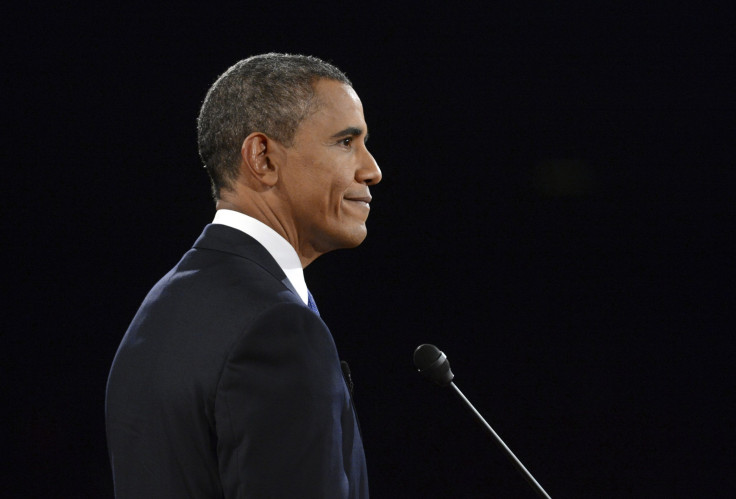Traders Sell Off Obama Shares In Political Futures Markets

The tiny corner of finance where political probability futures are bought and sold lit up during the first debate of the presidential election season between former Massachusetts Governor Mitt Romney and President Barack Obama.
People are still weighing in, but after a few hours of fierce activity Wednesday night, the wisdom of the trading crowds suggested Obama had lost a substantial edge over Romney during the course of the debate, making a re-election that looked like a foregone conclusion a few days earlier substantially less likely.
On Intrade, which bills itself “the world’s leading prediction market” and allows people to bet not just on presidential elections but other events, the contract for “Barack Obama to be re-elected President in 2012” plummeted on a high volume of trade as the debate went on. Odds on that possibility had reached close to 80 percent earlier this month and stood at 74 percent before the debate began.
According to CNN, they dropped sharply to 68.9 percent just as the debate was finished. Thursday morning, the odds stood at 66.1 percent. That's about the level the likelihood of a second Obama term was seen as having in the markets earlier this month, when a video was leaked showing Romney disparaging "47 percent" of Americans as too dependent to "take personal responsibility and care for their lives."
Over at the Iowa Electronic Markets, a presidential futures pit run by the University of Iowa, the probability of a Democratic presidential victory slid from 77.7 percent prior to the debate, to 69 percent late Wednesday, and continued to drop Thursday, recently quoting at 68.1 percent.
In a press release Wednesday, the operators of the Iowa Electronic markets had noted that the “first debate between the two is a good chance for Romney to give some momentum to his campaign” and highlighted some spikes in Romney’s ‘share price’ that suggested he could get a post-debate bounce but still cautioned that “recent history has shown that debates have a mixed record of influencing candidates’ prices on the IEM.”
The Romney rally in political markets, while significant, still suggest people participating in those trading schemes believe Obama has a more than 2-to-1 chance of winning the presidential race. And that should worry the Romney campaign -- on aggregate, InTrade users are more accurate at predicting election winners than any pollsters. The site odds had George W. Bush winning Florida in 2000, correctly predicted the winner of every single state in the 2004 election and only missed two in 2008.
Still, the GOP camp can at least revel in the fact it wasn’t just market-watchers in political futures that thought the president’s stock had lost value during the debate Wednesday.
“If the debate last evening had been a heavyweight prize fight between a seemingly indomitable champion (the President) and a reasonably well- respected challenger (Mr. Romney), this would have been a first round knockout by the challenger,” investor Dennis Gartman, who publishes a somewhat influential financial newsletter, told The Wall Street Journal. “It was not even close.”
© Copyright IBTimes 2024. All rights reserved.











